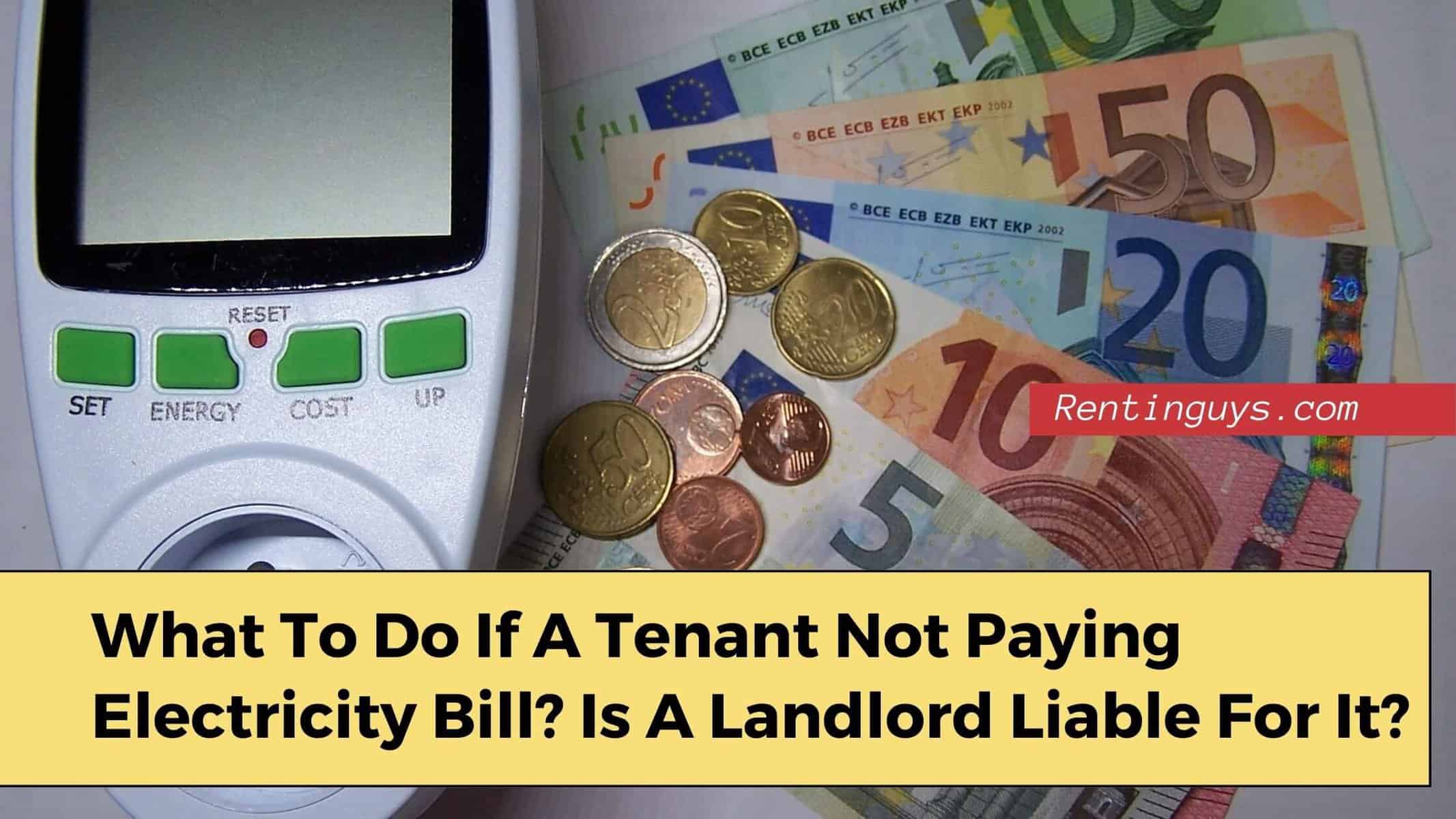Dealing with irresponsible tenets can be a challenging job for the landlords.
These tenants do not pay rent and other utility bills on time, leaving you with the responsibility of paying it out to the supplying company or facing the legal consequences for outstanding utility bills.
Most landlords complain of tenants not paying electricity bills on time. They are clueless about how to handle the issue and make the tenant pay the outstanding bill amount.
If you are one of these landlords wondering how to deal with the issue of pending electricity bills of the tenant, here is the information to address the issue in a fair manner.
How to handle tenants not paying electricity bills
Create a clear lease agreement
The rental lease agreement must clearly specify who is responsible for paying for the utilities such as electricity, water, trash collection, and so on.
The lease document should clearly state that the tenant must open an account in his name with the suppliers of different utilities and pay the bills on time.
You must also include the consequences of not paying utility bills within the due date.
Know their concerns
If your tenant is regular in paying bills but has missed the due date once or twice, it is important to speak to the tenant and know their concerns.
There are many reasons for tenants missing their due dates for paying electricity bills. For example, they may be away from home and forget to pay the bills, they may be facing some personal or financial crisis, etc.
You can call the tenant to give a reminder of outstanding bills and know the reasons for not paying on time. Being civil with your tenants goes a long way in maintaining a professional relationship.
Incentivize timely payments
Though most landlords frown on the idea of giving discounts on outstanding rent or bills, it actually works. The tenants are motivated to clear their outstanding dues if they get some offers or discounts.
For example, if the tenant has two months of unpaid bills due to a genuine reason, you can discuss a new payment option that suits their pocket. Most suppliers also offer easy schemes for clients who cannot pay huge bills.
Go the legal way
If all else fails, you will have to take the legal course. Check the federal, state, and local housing laws before taking any action against the tenant.
If the tenant does not clear the outstanding dues even after multiple reminders, consult a real estate lawyer and file a suit in the small claims court against the tenant.
Outstanding utility bills and tenants refusing to pay them are a challenge for every landlord. To avoid the situation it is essential to screen the tenants properly.
It is important to know their credit history, previous rental history, and their income before shortlisting a tenant.
Ensure that all the information about utilities and who is responsible for making payments is clearly mentioned in the lease document.
Keep open communication with the tenants and incentivize timely payments.
Can I turn off my tenant’s electricity in case they didn’t pay the bills?
You cannot turn off the tenant’s electricity even when they do not pay the bills. Turning off electricity can have adverse effects and may also lead to a lawsuit.
It is your duty as a landlord to provide a habitable house to the tenant and cutting off the electricity will amount to denying an essential service.
Turning off electricity may result in a breach of contract from your side even if the tenant is in the wrong for not paying the electricity bill on time.
Is the landlord responsible for tenants’ unpaid utility bills?
The landlord is responsible for the tenant’s unpaid utility bills if the services are in the name of the landlord.
The utility service provider will issue a legal notice to the account holder for non-payment of the electricity bill.
So even if your tenant is using the electricity, since the service is in your name, you will be held responsible.
However, If the utilities are registered in the tenant’s name, the landlord is not responsible for the tenant’s unpaid utility bills. The service-providing company will recover the dues from your tenant.
Will a landlord get a Legal notice for non-payment of electricity bill by a tenant?
The landlord will get legal notice for non-payment of the electricity bill by the tenant only when the electricity account is in his name.
It is critical to change the titleholder of services such as electricity, gas, water, etc. when you rent out a property.
It is also significant to mention the responsibilities of the tenant with regard to different utilities in the rental lease.
What happens if a tenant doesn’t pay the electric bill and moves out?
Tenants’ leaving behind outstanding bills while moving out is a fairly common scenario. Most landlords are clueless about how to deal with these outstanding bills.
What happens when the tenant moves out without paying the electricity bills depends on who is the title holder of the electricity account with the service provider.
The utility is in the tenant’s name
If the utility is in the tenant’s name, the contract is between the service provider and the tenant. It is the tenant’s responsibility to clear the dues.
If the tenant is unwilling to clear off the dues, the utility company will file a lawsuit to recover the money.
The utility is in landlord’s name
If the electricity service account is in your name and the tenants were paying the bill, you will be in the know about any outstanding bills.
You can communicate with the tenant and make them clear the dues before leaving the property.
If they leave the property without clearing the dues, the service provider will hold you accountable for clearing them.
In this scenario, certain states allow landlords to deduct a portion of the security deposit to pay off the dues.
However, it is crucial to check your local laws on security deposits before using them, to avoid getting into a legal dispute with the tenant.
If there is no security deposit, there is no other way than to clear off the dues and then take the tenant to the small claims court to get your money back.
It is frustrating for landlords to deal with irresponsible tenants who do not pay their bills on time.
To save yourself from financial loss, it is important to create a clear lease outlining the tenant’s responsibility for different utilities.
It is also advisable to ask the tenant to open a new service account with the utility company.






